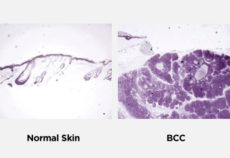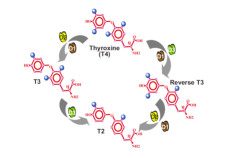
Deiodinases are expressed in cancer cells and tissues. PMID: 22675319
Deiodinases constitute a group of thioredoxin fold-containing selenoenzymes that play an important function in thyroid hormone homeostasis and control of thyroid hormone action. There are three known deiodinases: D1 and D2 activate the pro-hormone thyroxine (T4) to T3, the most active form of thyroid hormone, while D3 inactivates thyroid hormone and terminates T3 action. A […]

